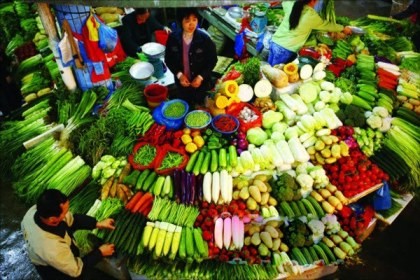China’s search engine giant Baidu is entering the e-commerce sector for fresh produce as it reveals plan to invest $20 million in online food retailer Womai, the China Daily reported.
According to a report on qq.com, a news portal run by Tencent Holdings Ltd., the search engine giant joined the latest funding round worth $200 million for Womai, a food website owned by China National Cereals, Oils and Foodstuffs Corp., a leading supplier of agricultural products, which is better known as COFCO Corp.
The report said that Womai's $200-million funding round is expected to set a record in online food retailing sector, adding that the company is planning an initial public offering of its shares in 2017.
Although Baidu confirmed its investment, it declined to give further details, and said that it will issue a statement next week.
Taikang Life Insurance Co. Ltd. is the other major investor in Womai, the report said.
Baidu's interest in the online fresh food sector came as a rising number of Chinese consumers are turning to websites and mobile platforms for fruits, seafood and other fresh agricultural products.
The fresh funds will be used to strengthen the cold-chain logistics infrastructure and for third-party delivery systems.
Tencent and Alibaba Group Holding Ltd., Baidu's top rivals, have been building their market presence either by cooperation or by launching their own fresh produce platforms.
Lu Zhenwang, an independent Internet expert and chief executive officer of the Shanghai-based Wanqing Consultancy, said that Womai's huge catalog of food products is the subject of interest of Baidu.
"Backed by COFCO, Womai can access a wide range of agricultural products at low prices, which can help Baidu further expand its online-to-offline catering business," Lu said.
Baidu promised in July to invest $3.2 billion over three years in its O2O platform Nuomi to offer services like food delivery.
"Fresh produce is gaining popularity with consumers. Once Internet firms manage to turn regular buyers of fresh produce into active users of their websites, they can sell these consumers other more expensive items," Lu added.



























